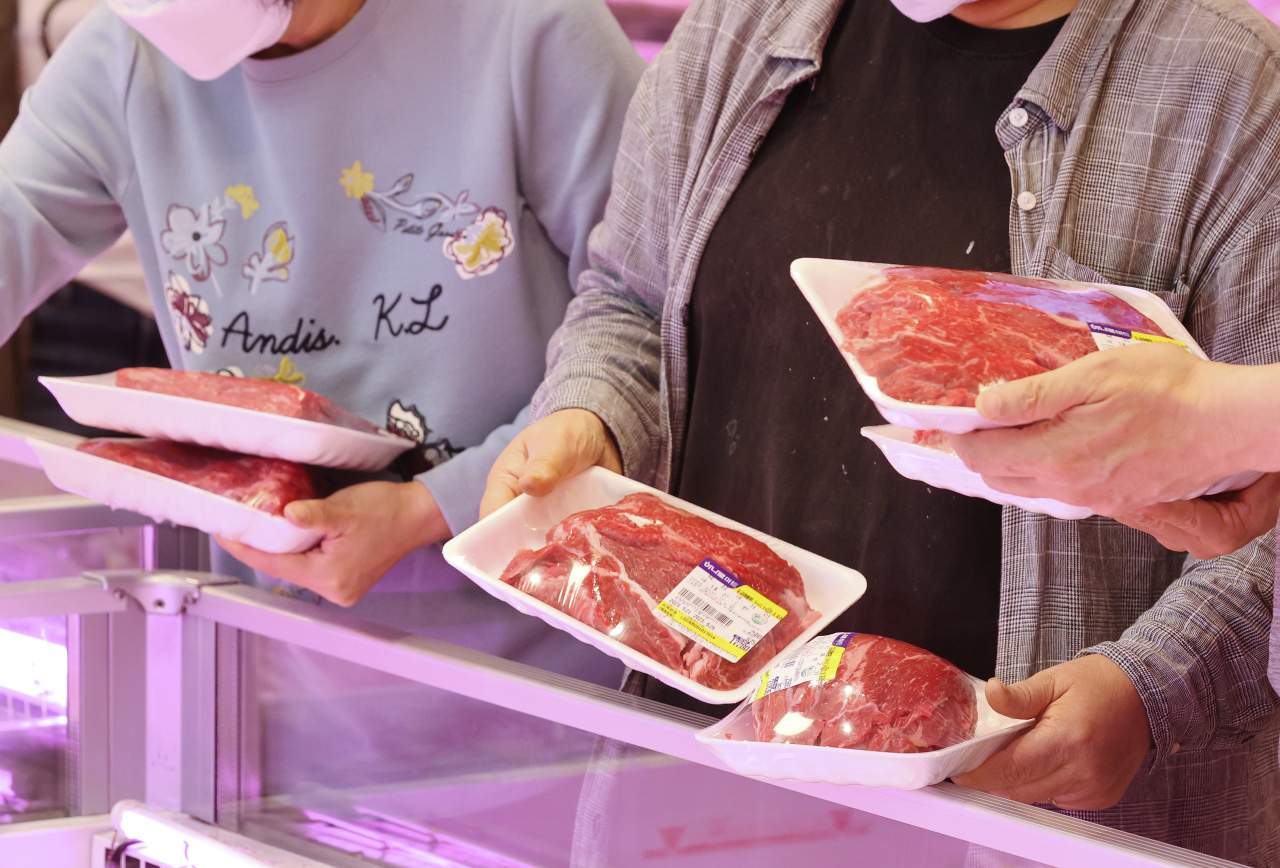S. Korea to lower tariffs on major agricultural imports amid inflation
By YonhapPublished : May 30, 2023 - 10:38

South Korea's finance ministry said Tuesday it has decided to apply tariff-rate quotas on eight major foodstuff imports to ease households' burden amid rising consumer prices.
Under the plan passed at the Cabinet meeting, South Korea will lift tariffs on 45,000 tons of pork and 10,000 tons of mackerel starting in early June, according to the Ministry of Economy and Finance.
"This year, the overall growth in consumer prices has slowed to some extent," the finance ministry said. "However, some agricultural, fishery and livestock products have experienced a hike due to short-term supply shortages and rising global prices."
In April, the local consumer price of pork and mackerel moved up 4.2 percent and 13.5 percent, respectively.
The finance ministry attributed higher pork prices to growing outdoor activities by South Koreans. The falling amount of production of mackerel from Norway raised its local price tag as well, it added.
The new policy will be applied through December for pork and August for mackerel.
The tariff-rate quota is a system under which products are imported with favorable duty conditions within a designated volume. The amount imported beyond the limit is applied with higher tariffs.
Other major imports that will benefit from the new policy include sugar, which will enjoy zero tariff for 105,000 tons. The country will remove tariffs for all imports of raw sugar as well, amid the rising global prices.
South Korea is set to increase the quota of ginger that qualifies for lower tariffs of 20 percent, compared with the higher 377.3 percent imposed on volumes exceeding the amount. The amount will be raised by 1,500 tons, reaching a total of 3,360 tons.
The rule on ginger, however, will be applied only through September to protect local farms.
South Korea's consumer prices grew at the slowest pace in more than a year in April on falling global oil prices, separate data showed earlier this month. Consumer prices, a key gauge of inflation, rose 3.7 percent last month from a year earlier, compared with a 4.2 percent on-year rise in March.
Inflation nevertheless stayed above 2 percent -- the central bank's inflation target over the medium term -- for the 25th straight month in April. (Yonhap)











![[Today’s K-pop] BTS pop-up event to come to Seoul](http://res.heraldm.com/phpwas/restmb_idxmake.php?idx=644&simg=/content/image/2024/04/17/20240417050734_0.jpg&u=)





![[KH Explains] Hyundai's full hybrid edge to pay off amid slow transition to pure EVs](http://res.heraldm.com/phpwas/restmb_idxmake.php?idx=652&simg=/content/image/2024/04/18/20240418050645_0.jpg&u=20240419100350)

![[Today’s K-pop] Zico drops snippet of collaboration with Jennie](http://res.heraldm.com/phpwas/restmb_idxmake.php?idx=642&simg=/content/image/2024/04/18/20240418050702_0.jpg&u=)